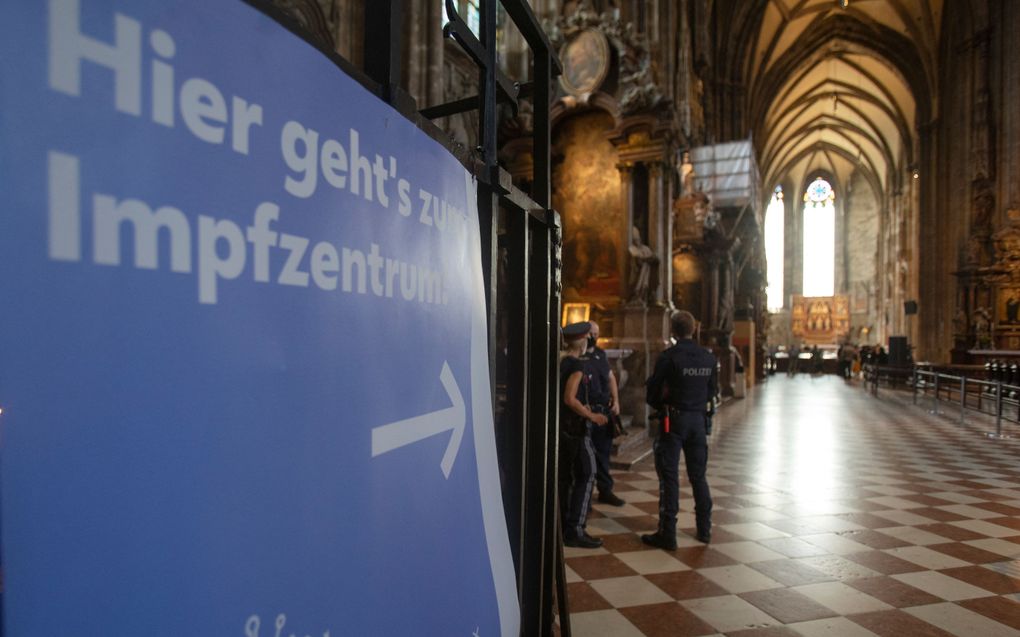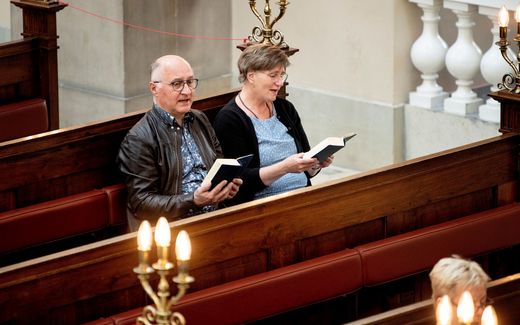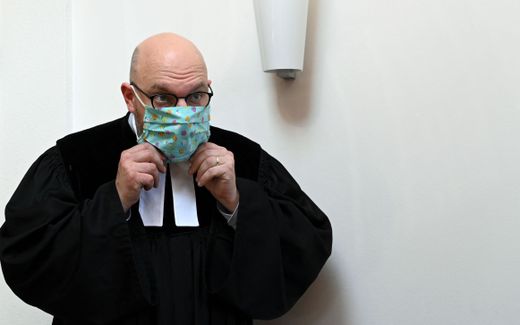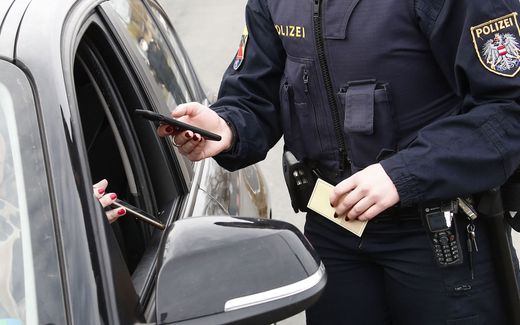Austria’s bishops: ‘Temporary’ vaccine mandate permissible as last resort

A sign indicates the way to the vaccination center installed at the Barbara Chapel of the famous St Stephen's Cathedral in Vienna. Photo AFP, Alex Halada
Central Europe
The Catholic bishops in Austria have issued a joint statement supporting compulsory vaccination against the coronavirus. The churchmen said this should be limited in time and a “last resort” to combat the coronavirus pandemic on Tuesday.
Among others, kathpress and Catholic News Agency write about it. In the statement “Protect. Heal. Reconcile.”, the bishops’ conference acknowledged that “compulsory vaccination is a serious encroachment on the bodily integrity and freedom of the individual. It is therefore only permissible if, taking into account proportionality, all other options have been exhausted to protect the population — in the case of the pandemic, the health system, and thus human lives.”
The bishops claim that it is not up to the individual’s conscience, but “ultimately the responsibility of those in power to judge whether the conditions are met and whether a temporary vaccination obligation” is now appropriate.
Indispensable contribution
According to the Austrian Broadcasting Corporation ORF, Austria’s government plans to present a compulsory vaccination by the end of the week. This should come into force in February 2022 and be “watertight”, Health Minister Wolfgang Mückstein told the radio station.
The bishops state that they “do not give a detailed vote on the concrete form of the planned law” and therefore “do not participate in the review process”.
Austria’s bishops further point out that a broad scientific consensus evaluates vaccination against Covid-19 as an “indispensable contribution” to protect people from severe, life-threatening diseases. The statement says: “Those who get vaccinated are also protecting public health systems from overuse and all those who need intensive medical treatment, not for Corona but other reasons.” Due to the tense situation in hospitals because of the Corona cases, “we bishops once again urge people to get vaccinated. We recall the words of Pope Francis: ‘Vaccination is an act of charity”.
Advent
Given the polarisation in society, the bishops call for a “healing disarmament of words and gestures”, a readiness for reconciliation and prayer, especially during Advent.
In the context of the debate on the appropriateness of measures to combat Covid, the bishops see “a dangerous polarisation in society”. It is evident in the “overheated and disrespectful way of attacking each other with thoughtless accusations, insinuations and violent language”. The bishops clearly stated the limits of protest: Attempts to relate state measures for pandemic containment to the National Socialist regime of injustice should be rejected. “Such shameful trivialisation of Nazi crimes must not be tolerated.
Because of numerous injuries and disagreements with presumably dangerous long-term consequences, there is an “urgent need for a healing disarmament of words and gestures” and a new culture of conversation. “Listening is healing,” the bishops said, and the most important prerequisite for any successful communication. “Only respect for opposing opinions and different points of view can ensure peaceful coexistence.”
Especially during Advent, when many people long for more silence, deceleration and relief, the bishops suggest “to refrain as far as possible from unnecessary indignations and fruitless debates. Let us refrain from anything that could belittle, hurt and humiliate someone. A collective pause of this kind would do us all good.”
Scepticism
The Italian moral theologian Martin M. Lintner has expressed scepticism about a general obligation to vaccinate. In his view, it would be “too serious an encroachment on personal liberties, especially on the right to bodily integrity” ORF reports. That does not alter the fact that he is a great supporter of vaccination, the professor of the Philosophical-Theological University of Bressanone (South Tyrol) indicated. “At the moment, it cannot be emphasised strongly enough that vaccination is a medical advance that saves a great many lives.”
The Church should be cautious about compulsory vaccination, though, Lintner continued. However, he said he welcomes the fact that church representatives are taking a firm stand favouring vaccination. “They should also express their trust in science and medical research and make it clear that vaccination is a good protection for themselves and others, even an act of charity in the current situation.”
Related Articles






